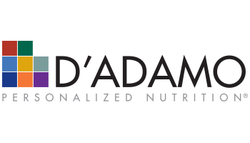
Many Americans don’t know their blood type. According to a 2019 CBS poll, 34% of us have no idea.
Knowing your blood type is important for several reasons. Emergency situations that may require a blood transfusion is certainly one, but not the only one. Some people discover that they have a rare blood type and are inspired to become regular blood donors. And women who are pregnant need to know if their blood type is compatible with that of their baby.
But knowing your blood type can also open the door to health, vitality and overall well-being. Your blood type determines your susceptibility to certain illnesses, which foods you should eat and how you should exercise. There is strong evidence to support the connection between blood type and diet. In fact, Dr. Peter J. D’Adamo’s groundbreaking book, Eat Right 4 Your Type, has helped millions of people around the globe achieve a healthier life by choosing foods that are compatible with their blood types.
If you don’t know your blood type – O, A, B or AB – here are five simple ways to find out:
- Ask your parents or your doctor. Before you pursue having your blood drawn, ask first. This information may already exist in your birth, health, or hospital records, and your parents or your doctor may also be able to provide it. Similarly, if you’ve served in the military, your blood type is likely to be in your military records.
- Have your blood drawn. The next time your doctor orders a blood draw, ask to have blood typing included.
- Contact a laboratory. Some labs that do blood draws offer blood typing tests directly to patients for a fee. If you’re not due for any bloodwork, this may be a good option.
- Donate blood. When you donate blood, your blood goes through multiple tests and blood typing is one of them. If you donate through the Red Cross, you will receive a donor card that indicates which blood type group you belong to. Donating blood is free and for a very good cause. Did you know that every two seconds someone in the U.S. needs blood? However, only 3% of eligible people donate blood yearly.
- Test it yourself at home. Our Original Home Blood-Typing Kit is safe, inexpensive and easy to use. It comes with everything you need to determine your blood type, including an extra lancet. Within minutes you’ll be able to determine both your ABO blood type and your Rh factor (whether the Rh factor protein found on the surface of your red blood cells is present (+) or not present (-)).
If you’re doing an at home test, you might want to take the extra step to find out if you’re a secretor or a non-secretor. 80% of the population secretes the same antigens found in their blood in other bodily fluids, such as saliva. A Secretor Status test can determine your status and that knowledge can help you to further refine your personalized nutrition plan.
No matter which method you choose, knowing your blood type is the first step in creating a unique nutrition plan based on your individual genetic makeup.

